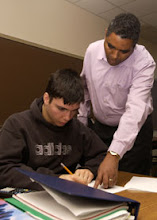So now we can blame each other for irrational intransigence, for playing chicken with school busses… with predictable results. So what’s “rational”?
The narrow definition of rationality – even in this form, a trait in apparently short supply in the halls of power – imagines that as shoppers we make purchases from the lists we brought to the store. More broadly defined, the free exercise of the rational faculty requires that we be able to choose among the lists we might have written. It requires us to get beyond pure agency (running an errand) and to engage imagination and – dare I say it? – empathy (what does the family need). Full rationality may even mean wanting a totally different list, one that we did not start with, one that answers needs beyond our immediate appetites. If we cannot even imagine that a different list could be transcendentally better than the list we came with, we are in no manner free and our rationality is sorely limited.
Harry Frankfurt examines this notion of full and free rationality in his 1971 article, Freedom of the Will and the Concept of a Person, in which he distinguishes between the broader “person” - what I might call a fully rational being – and something less, which Frankfurt terms a “wanton”, responding efficiently and predictably to stimulus. He then presents his notion of personal freedom:
“A person who is free to do what he wants to do may yet not be in a position to have the will he wants. Suppose, however, that he enjoys both freedom of action and freedom of the will. Then he is not only free to do what he wants to do; he is also free to want what he wants to want. It seems to me that he has, in that case, all the freedom it is possible to desire or conceive. There are other good things in life, and he may not possess some of them. But there is nothing in the way of freedom that he lacks.” (17)
As I read Frankfurt, anyone who is constrained, by self or other, from the exercise of “second-order volition”, the wish to want what one does not now want, would fail the test for rational, free, personhood. By this construction, intransigence must reflect either a wanton’s inability to conceive of another list, or a person’s doctrinal imprisonment.
Dr. Lewis C. Sage likes intersections. Since 1991, he has taught Law and Economics, Mathematical Economics, and the Economics of Healthcare. A former Fulbright Fellow (Bulgaria 1995-6), he teaches an interdisciplinary Honors seminar, Enduring Questions, and is studying strategy in the NFL draft with faculty and students in Sports Management and Psychology. E-mail: lsage@bw.edu



No comments:
Post a Comment